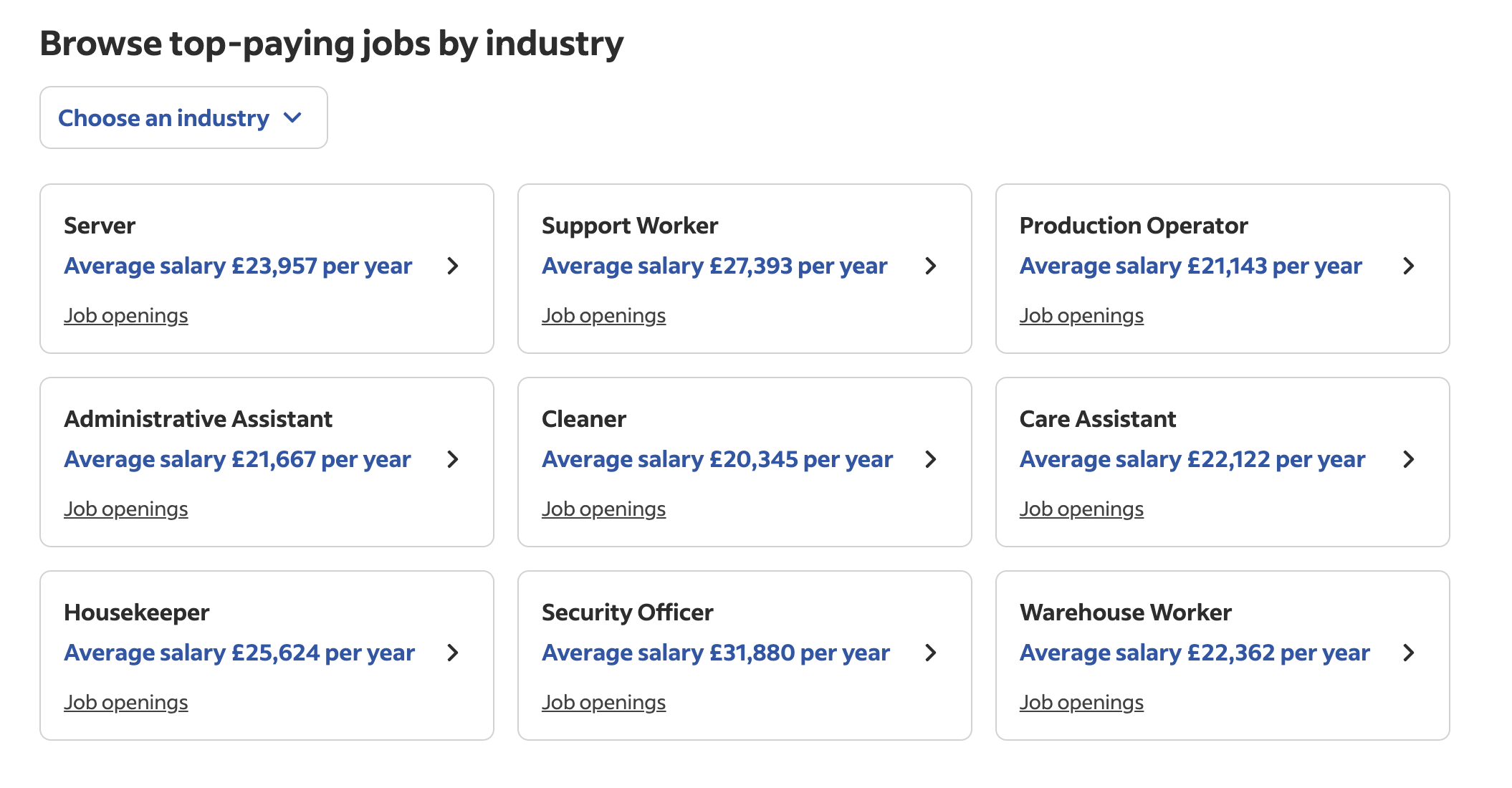Negotiating a salary increase can be a pivotal moment in your career. It’s a process where understanding your value and the market rate for your position is crucial. Approaching your employer with a well-prepared case demonstrates professionalism and can significantly affect the outcome. Being informed about the company’s pay structure and performance metrics, as well as your accomplishments and contributions, positions you more favourably in discussions.
Confidence plays a vital role during the negotiation. It’s not just about stating a number; it’s about presenting the rationale behind your request clearly and concisely. Whether you’re preparing for an annual review or you’ve taken on additional responsibilities without a commensurate pay increase, the negotiation process is your opportunity to align your compensation with your professional worth.
I understand that there are plenty of jobs where you cannot negotiate that much, but even at those jobs you can learn to increase your value and hence your salary. It is good to be prepared and know how you can ask for more money.
- Understanding your value and the market rate is crucial for salary negotiation.
- A well-prepared case enhances your professionalism and negotiation outcomes.
- Confidence and clarity in presenting your rationale are key during the negotiation process.
Understanding Salary Negotiation

In salary negotiation, knowledge is power, and being well-prepared can significantly increase your chances of securing a better offer.
The Importance of Research
Research is the cornerstone of effective salary negotiation. Before entering into discussions, it’s crucial to gather detailed information about the typical salary ranges in your industry. Utilise salary surveys and online databases to understand the current market trends. You can also check out other job websites like Indeed to see what salaries other companies offer. These resources reflect variations across different locations, qualifications, and job titles, providing you with a reliable benchmark.

Knowing Your Market Value
Determining your market value involves a comprehensive analysis of your skills, achievements, and overall performance in your role relative to the market. Check for recent salary surveys within your industry and consult credible sources such as professional organizations or industry groups. Assessment tools can quantify your worth, considering factors like your experience, education level, and qualifications.
Assessing Your Contribution
Reflect on your contributions to the organisation and how they have positively impacted business outcomes. Compile a list that includes specific achievements, instances where you’ve exceeded expectations, or any recognition you’ve received. By presenting your track record of success and ongoing value to the company, you bolster your case for a salary increase. Keep records of quantifiable results and positive feedback you’ve received to help justify your request for a higher salary.
Preparing Your Case
Effectively negotiating a salary increase hinges on a sturdy business case and impeccable timing. Your approach should be informed by factors that influence salaries and wield effective communication strategies.

Building Your Business Case
To lay the groundwork for your request, you need to demonstrate your value to the employer. List your significant achievements, quantify your contributions in terms of revenue or cost savings, and compare your current salary with industry standards. Use recruiters and career advisors to understand the rates for someone with your skills and experience in your region.
- Achievements: Consistently exceeded sales targets by 20%.
- Contribution: Implemented a system that reduced operational costs by £10,000 annually.
- Market Comparison: Research industry standards and compile data showing typical salaries for your role.
Timing Your Request
Optimal timing can be a key determinant of success. Schedule your discussion around positive performance reviews, completion of significant projects, or during a pay review period when employers are more receptive to salary discussions. Avoid times of company financial strain or during heavy project phases.
- Optimal Periods: Annual pay review; post-project completion.
- Unfavourable Times: Company financial downturns; mid-project.
Factors Influencing Salary Increases
Various elements can affect potential salary increases. Inflation rates and the resulting cost of living changes can inform the necessity for a raise. Your track record and length of service with the employer also play crucial roles. Stay informed on economic trends and be prepared to articulate how they relate to your request.
- Inflation: Inflation currently stands at 3%; thus, a matching increase is reasonable.
- Service Length: Celebrated five years with the company last month, indicating loyalty and stability.
Effective Communication Strategies
Approach the negotiation with confidence, but maintain a professional and respectful tone. Clearly articulate the reasons for your request, focusing on your contributions and value to the company rather than personal financial needs. Emphasise the mutual benefits of your proposed salary increase.
- Focus: Your contribution’s impact on company success.
- Tone: Confident yet respectful, stressing mutual benefit.
- Preparation: Role-play potential responses to strengthen your negotiating position.
The Negotiation Process
In this section, you’ll learn how to effectively initiate salary negotiation, employ practical tactics, and handle the outcomes, whether they are counteroffers or outright rejections.
Initiating the Conversation
To begin, identify the right moment to bring up salary discussions, aiming for a period when your value to the company is evident. Prepare by gathering evidence of your achievements and understanding how they align with the company’s success. Demonstrating your worth with confidence is intrinsic to setting a positive tone for the negotiation.
Negotiating Tactics
It’s imperative to approach the negotiation with a clear goal in mind. Start by deciding the salary increase you’re seeking and consider the following strategies:
- Leverage: Arm yourself with industry salary data to strengthen your position.
- Flexibility: Show willingness to find a middle ground if the initial offer isn’t met.
- Courage and Confidence: Maintain a confident yet respectful tone throughout.
- Competing and Collaborating: Aim to reach an agreement that benefits both parties, blending competitive edge with collaborative spirit.
Handling Counteroffers and Rejections
In response to your proposal, you may encounter:
- Counteroffer: Assess any counteroffer against your desired outcome and be prepared to continue negotiations, showing flexibility without compromising your goals.
- Rejection: If faced with rejection, remain composed. Ask for feedback and future possibilities for re-evaluation. This can demonstrate your professionalism and dedication to continuous improvement.
Use this guide to navigate the intricacies of negotiating your salary with confidence, clear communication, and a strategic mindset.
After the Negotiation
Following a salary negotiation, it’s imperative to concentrate on both the preservation of workplace connections and the strategic planning of your career trajectory.
Maintaining Professional Relationships
Your approach after the negotiation can significantly influence your ongoing working relationships. If your request for a salary increase was successful, it’s crucial to express gratitude and reaffirm your commitment to the organisation. Demonstrate this through:
- Continued excellence in your role: Taking on responsibilities willingly and completing all tasks to the best of your ability.
- Open communication: Transparency with your manager and team can prevent any tension that may have arisen during the negotiation.
If your request was not fully met, maintain a professional demeanour and seek feedback to understand any underlying reasons. Consider the following steps:
- Acknowledge the outcome calmly, without showing resentment.
- Request a follow-up meeting to discuss alternative ways to enhance your compensation, such as training opportunities or additional benefits.
Planning Future Career Moves
Strategically planning your career after a negotiation gives you a road map for future growth and achievement. Your primary focus should be defining clear career goals that align with your contributions and responsibilities. Here are some actionable steps:
- Set specific objectives for the short and medium term. Outline what achievements or milestones you aim to reach within the next year to secure your place as a valuable contributor to your team.
- Review job descriptions for potential future roles, both within and outside your current company, to understand the skills and experience required for your next career step.
For those in entry-level positions, it’s particularly important to seek mentorship and career advice that can guide your next steps. Look to establish relationships with more experienced colleagues who can provide insights into advancing within your field.
Your aspirations and actions post-negotiation lay the groundwork for continued professional success and advancement. Stay proactive and positive, to enhance your skill set and take on expanded responsibilities when opportunities arise.
